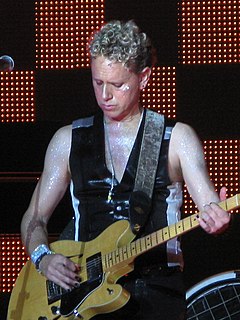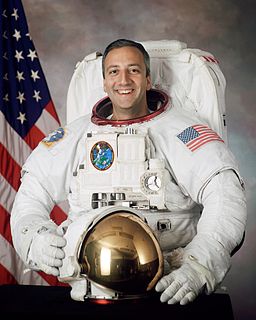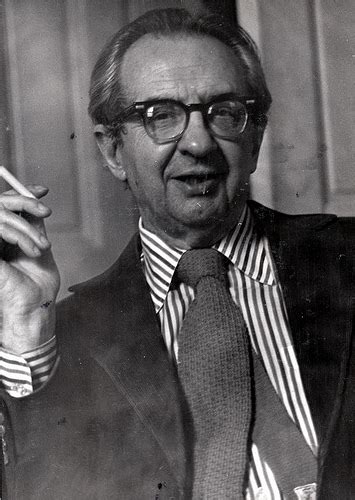A Quote by E. O. Wilson
Without the instruments and accumulated knowledge of the natural sciences... humans are trapped in a cognitive prison. They are like intelligent fish born in a deep shallowed pool. Wondering and restless, longing to reach out, they think about the world outside. They invent ingenious speculations and myths about the origin of the confining waters, of the sun and the sky and the stars above , and the meaning of their own existence. But they are wrong, always wrong because the world is too remote from ordinary experience to be merely imagined.
Quote Topics
About
Above
Always
Always Wrong
Because
Born
Cognitive
Deep
Existence
Experience
Fish
Humans
Imagined
Ingenious
Instruments
Intelligent
Invent
Knowledge
Like
Longing
Meaning
Meaning Of
Merely
Myths
Natural
Natural Science
Natural Sciences
Ordinary
Origin
Out
Outside
Own
Pool
Prison
Reach
Reach Out
Remote
Restless
Sciences
Sky
Stars
Sun
Think
Too
Trapped
Waters
Without
Wondering
World
Wrong
Related Quotes
A world without right or wrong was a world that did not want itself, anything other than itself, or anything not those two things, but that still wanted something. A world without right or wrong invited you over, complained about you, and gave you cookies. Don't leave, it said, and gave you a vegan cookie. It avoided eye contact, but touched your knee sometimes. It was the world without right or wrong. It didn't have any meaning. It just wanted a little meaning.
I start from the supposition that the world is topsyturvy, that things are all wrong, that the wrong people are in jail and the wrong people are out of jail, that the wrong people are in power and the wrong people are out of power, that the wealth is distributed in this country and the world in such a way as not simply to require small reform but to require a drastic reallocation of wealth. I start from the supposition that we don't have to say too much about this because all we have to do is think about the state of the world today and realize that things are all upside down.
I was born with the wrong sign
In the wrong house
With the wrong ascendancy
I took the wrong road
That led to
The wrong tendencies
I was in the wrong place
At the wrong time
For the wrong reason
And the wrong rhyme
On the wrong day
Of the wrong week
Used the wrong method
With the wrong technique
Wrong
Wrong.
Yeah. I?ve always felt this way. I mean we?re born alone, we die alone. And while we?re here we are absolutely, completely sealed in our own bodies. Really weird. Kinda freaks me out to think about it. We can only experience the outside world through our own slanted perception of it. Who knows what you?re really like. I just see what I think you?re like.
Both the President and Mr Gorbachev have said that they want to see a world without nuclear weapons. I cannot see a world without nuclear weapons. Let me be practical about it. The knowledge is there to make them. So do not go too hard for that pie in the sky because, while everyone would like to see it, I do not believe it is going to come about.
The reason we have the stars twinkle at night is because the light is being kind of blurred by the atmosphere around the Earth. That is why the Hubble Space Telescope is so good, because it is above the atmosphere. So it is kind of like looking at the sun from the bottom of a swimming pool, versus looking at the sun above the swimming pool.
It's the pool where we all go down to drink, to swim, to catch a little fish from the edge of the shore; it's also the pool where some hardy souls go out in their flimsy wooden boats after the big ones. It is the pool of life, the cup of imagination, and she has an idea that different people see different versions of it, but with two things ever in common: it's always about a mile deep in the Fairy Forest, and it's always sad. Because imagination isn't the only thing this place is about.
A myth is a way of making sense in a senseless world. Myths are narrative patterns that give significance to our existence. Whether the meaning of existence is only what we put into life by our own individual fortitude, as Sartre would hold, or whether there is a meaning we need to discover, as Kierkegaard would state, the result is the same: myths are our way of finding this meaning and significance.
For me, there's always an early-'70s sense. There's always a sprinkle of it - if I do it exactly like that, sometimes it becomes too costume-y or too thought out. But the influences are there, without a doubt, always, because to me, that was the part that I also felt was the most defining of my own personality and my own style, and I also think that it's timeless. You never look wrong.
We still like to make up stories, just as our ancestors did, which use personification to explain the great forces of our existence. Such stories, which explain how the world began or where the sun goes when it sets, we call myths. Mythology is a natural product of the symbolizing mind; poets, when not making up myths of their own, are still commanding ancient ones.
Out of the house and on my own, I faced the fact I didn't much like who I was. I didn't like my judgmentalism; I didn't like my absolutism. I didn't like my repression of natural empathy, my pinched lack of emotional generosity. How I had been thinking politically had less to do with what was wrong with the world and more to do with what was wrong with me, with my fears and insecurities, failings, weaknesses.
Shallow ecology is anthropocentric, or human-centred. It views humans as above or outside nature, as the source of all value, and ascribes only instrumental, or 'use', value to nature. Deep ecology does not separate humans - or anything else - from the natural environment. It does see the world not as a collection of isolated objects but as a network of phenomena that are fundamentally interconnected and interdependent. Deep ecology recognizes the intrinsic value of all human beings and views humans as just one particular strand in the web of life.
I set out to show that there exists single creative activity,which is displayed alike in the arts and in the sciences.It is wrong to think of science as a mechanical record of facts, and it is wrong to think of the arts as remote and private fancies. What makes each human, what makes them universal, is the stamp of the creative mind.





































